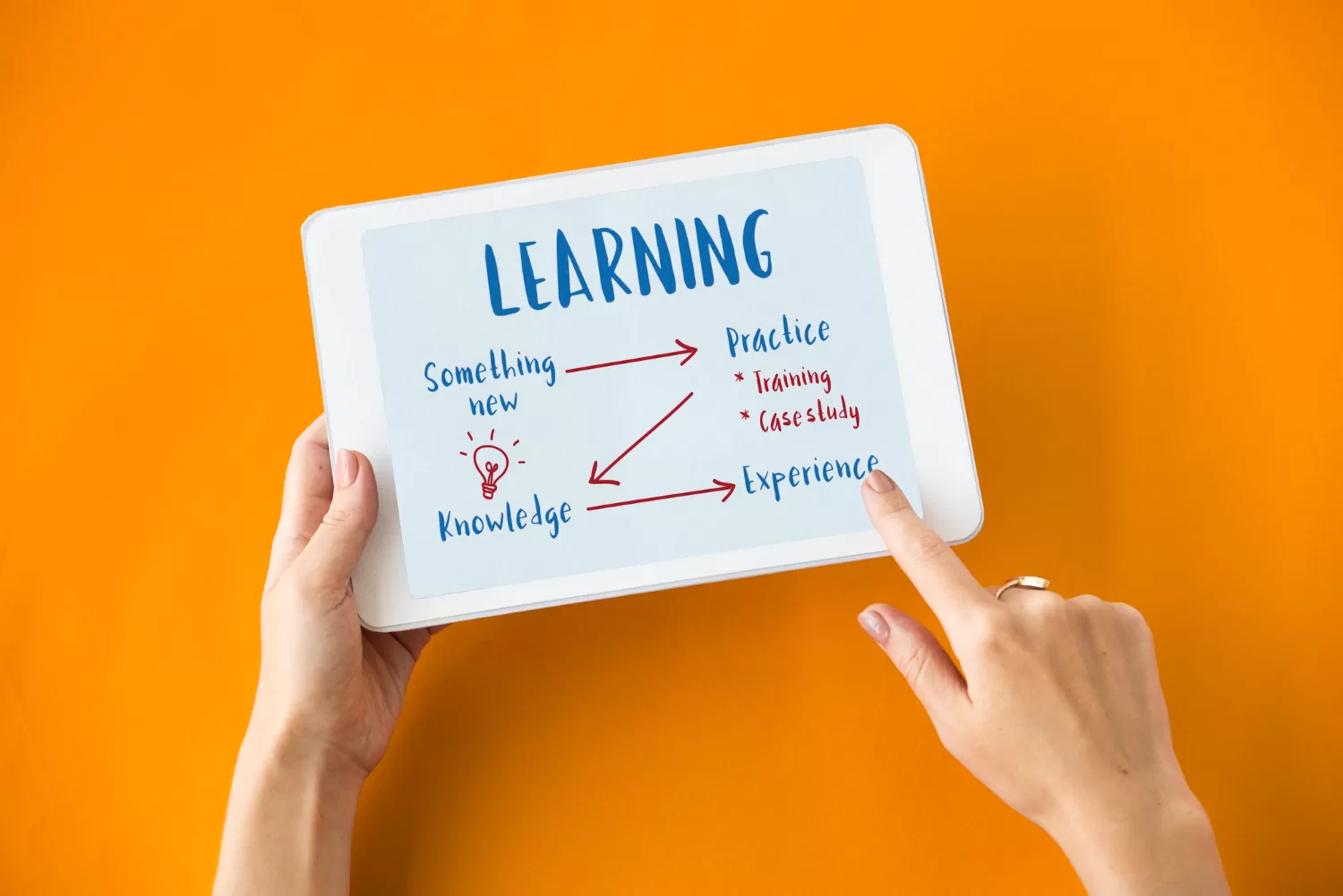Advanced Communication: Build Connections & Influence
Effective communication is the cornerstone of personal and professional success. In today’s interconnected world, mastering advanced communication skills has become more crucial than ever. Whether you’re delivering a persuasive presentation, resolving conflicts in the workplace, or nurturing relationships, advanced communication goes beyond just speaking or writing well; it encompasses the ability to connect, empathize, and influence effectively.
In this comprehensive guide, we’ll explore the essence of advanced communication skills, why they matter, and practical ways to develop them. Let’s dive in!
Understanding Advanced Communication Skills
Before we delve into techniques, it’s essential to understand what distinguishes basic communication from advanced communication. While basic communication focuses on the exchange of information, advanced communication emphasizes:
- Clarity and Precision: Conveying messages clearly, concisely, and with purpose.
- Emotional Intelligence: Understanding and managing emotions to communicate empathetically.
- Adaptability: Tailoring your communication style to different audiences and contexts.
- Persuasion and Influence: Encouraging others to embrace your ideas or take specific actions.
- Active Listening: Engaging fully with others to understand their perspective and respond appropriately.
- Conflict Resolution: Addressing and resolving disagreements constructively.
Why Advanced Communication Skills Matter
Advanced communication skills are more than just a professional asset; they are a fundamental life skill that can transform every area of your life. From achieving career milestones to building stronger personal relationships, these skills empower you to connect, lead, and thrive. Here’s why advanced communication skills are crucial in today’s world:
1. Professional Success
Effective communication is the cornerstone of professional growth. Whether you’re collaborating with colleagues, leading a team, or managing client relationships, advanced communication skills allow you to convey ideas with clarity, resolve conflicts efficiently, and build trust. These skills also enhance your ability to give and receive constructive feedback, ensuring smooth and productive interactions in the workplace.
Example: A project manager who can clearly articulate goals, provide actionable feedback, and motivate the team is far more likely to succeed than one who struggles with communication.
Why it matters: Clear and confident communication drives collaboration, reduces misunderstandings, and fosters a positive work environment, directly impacting productivity and career advancement.
2. Personal Relationships
In personal life, communication forms the bedrock of trust and emotional connection. Whether it’s a conversation with your partner, a heart-to-heart with a friend, or addressing conflicts within the family, advanced communication enables you to express your thoughts while empathizing with others. It helps you navigate sensitive topics, avoid misunderstandings, and build deeper, more meaningful relationships.
Example: A person who listens actively and expresses their emotions clearly can resolve conflicts with empathy, strengthening their relationships over time.
Why it matters: Strong communication fosters understanding, minimizes conflicts, and creates a safe space for emotional growth in relationships.
3. Improved Decision-Making
Good communication is integral to effective decision-making, both individually and in group settings. The ability to articulate ideas, analyze information, and discuss diverse viewpoints ensures that decisions are well-informed and strategically sound. Advanced communicators can present their arguments persuasively, facilitating consensus and alignment within teams.
Example: A team leader who communicates data-driven insights clearly and encourages open discussion is more likely to make balanced decisions that align with organizational goals.
Why it matters: Clear articulation of ideas and open dialogue lead to better understanding, fewer errors, and more robust outcomes.
4. Leadership Impact
Leadership and communication go hand in hand. Leaders with advanced communication skills have the ability to inspire, guide, and influence their teams effectively. They convey a compelling vision, provide clear direction, and address concerns empathetically. Moreover, they are adept at fostering collaboration and maintaining team morale, even in challenging situations.
Example: A CEO who communicates a company’s vision passionately and transparently can rally employees toward shared goals, even during times of change or uncertainty.
Why it matters: Strong communicators in leadership positions create trust, drive motivation, and build cohesive, high-performing teams.
5. Global Connectivity
In today’s interconnected world, communication has become the bridge between diverse cultures, perspectives, and time zones. With the rise of multicultural workplaces and remote work environments, the ability to communicate effectively across boundaries is more critical than ever. Advanced communication skills, such as adaptability and cultural sensitivity, enable individuals to navigate these complexities with ease.
Example: A marketing professional working with international clients who understands cultural nuances and tailors their communication style is more likely to build strong global relationships.
Why it matters: Advanced communication ensures that ideas and perspectives are shared effectively, fostering collaboration and mutual respect in a globally connected environment.
Key Components of Advanced Communication Skills
Mastering advanced communication involves more than simply exchanging information. It requires a holistic approach that integrates emotional intelligence, active listening, adaptability, and other essential skills. Below, we delve deeper into the key components that define advanced communication and explore actionable strategies to develop them.
1. Emotional Intelligence (EI)
Emotional Intelligence is the ability to recognize, understand, and manage your own emotions while being attuned to the emotions of others. It forms the foundation of meaningful interactions and fosters strong relationships.
Key Roles of EI in Communication:
- Building Rapport: By understanding emotional cues, you can connect authentically with others.
- Empathetic Responses: Demonstrating empathy allows others to feel heard and valued.
- Managing Stress: EI helps you remain calm and composed during challenging conversations.
How to Enhance EI:
- Practice Mindfulness: Regular mindfulness exercises can improve your self-awareness and emotional regulation.
- Reflect on Interactions: After conversations, think about how emotions influenced the interaction and what could have been improved.
2. Active Listening
Active listening is a vital communication skill that goes beyond simply hearing words. It involves fully engaging with the speaker, ensuring you understand their perspective.
Core Elements of Active Listening:
- Paying undivided attention to the speaker.
- Avoiding interruptions or premature responses.
- Reflecting and paraphrasing to confirm understanding.
- Responding thoughtfully to show genuine engagement.
Practical Exercise:
In your next conversation, focus solely on listening. Avoid formulating your response while the other person is speaking. Summarize their key points to confirm understanding, e.g., “What I hear you saying is…”
3. Nonverbal Communication
Nonverbal cues often carry more weight than spoken words. Mastering body language, facial expressions, and tone of voice can greatly enhance your communication.
Key Benefits of Nonverbal Communication:
- Reinforces verbal messages, ensuring clarity.
- Conveys confidence and sincerity.
- Helps prevent misunderstandings.
Quick Tips to Improve Nonverbal Skills:
- Maintain appropriate eye contact to show attentiveness.
- Use open gestures like uncrossed arms to appear approachable.
- Be mindful of your posture; stand or sit upright to exude confidence.
4. Clarity and Brevity
Advanced communicators are skilled at delivering messages clearly and concisely. They avoid jargon and tailor their words to ensure their audience grasps the core message without confusion.
How to Communicate with Clarity:
- Apply the “KISS” Principle: Keep It Simple and Specific. Avoid overcomplicating your ideas.
- Organize Thoughts Effectively: Structure your communication with a clear beginning, middle, and end.
Actionable Tip:
Before speaking, ask yourself: “What is the one key takeaway I want my audience to remember?” Focus on that core idea.
5. Storytelling
Storytelling is a powerful tool to captivate your audience, make your message memorable, and evoke emotional responses.
Why Storytelling Matters:
- Creates an emotional connection.
- Simplifies complex ideas by framing them in relatable scenarios.
- Inspires and motivates your audience.
Example:
Instead of saying, “Our team’s hard work paid off,” share a brief anecdote, like, “There were nights when we stayed late brainstorming solutions. That perseverance led to a 20% increase in sales this quarter.”
6. Persuasion and Influence
Persuasion is about presenting ideas compellingly to encourage others to embrace your perspective or take action.
Key Strategies for Persuasion:
- Highlight benefits that resonate with your audience’s interests.
- Use evidence, such as data, case studies, or testimonials, to back your claims.
- Address objections respectfully, showing empathy for different viewpoints.
Framework for Persuasion:
- Establish Credibility (Ethos): Demonstrate expertise and integrity.
- Use Logical Reasoning (Logos): Present clear and rational arguments.
- Appeal to Emotions (Pathos): Evoke feelings that align with your message.
7. Adaptability
Every audience, setting, or cultural context is unique. Advanced communicators adapt their tone, style, and approach to meet the specific needs of their audience.
How to Practice Adaptability:
- Analyze Your Audience: Consider their preferences, background, and expectations.
- Adjust Your Tone and Style: For example, use formal language in a business meeting but a more conversational tone in casual settings.
- Stay Open to Feedback: Learn from every interaction to refine your approach.
8. Feedback Skills
Providing and receiving feedback is essential for personal and professional growth. Constructive feedback should be clear, actionable, and balanced.
How to Deliver Feedback Effectively:
- Focus on specific behaviors rather than personal traits.
- Balance positive reinforcement with areas for improvement.
- Encourage an open dialogue to ensure mutual understanding.
Example Feedback Template:
“I really appreciate your effort on [specific task]. One area to consider improving is [specific behavior]. What are your thoughts on this?”
9. Conflict Resolution
Conflict is inevitable, but advanced communicators manage disagreements constructively, focusing on resolution rather than blame.
Steps to Resolve Conflicts:
- Identify the root cause of the disagreement.
- Listen actively to all perspectives without interrupting.
- Seek win-win solutions that satisfy the needs of all parties.
Tip for Success:
Maintain a calm, respectful tone even in heated discussions. Acknowledge the other party’s concerns before presenting your viewpoint.
Developing Advanced Communication Skills
Building advanced communication skills is an intentional and ongoing process. It requires deliberate practice, self-reflection, and consistent effort. Here’s how you can systematically enhance your communication abilities:
1. Practice Deliberately
Deliberate practice involves focusing on one skill at a time, such as active listening, clarity, or emotional intelligence. By setting clear goals and consistently practicing, you can make targeted improvements.
How to Practice:
- Break communication into specific elements (e.g., tone, pacing, or clarity).
- Set measurable goals, such as improving eye contact or reducing filler words.
- Evaluate your progress through self-assessment or feedback from others.
Example:
If you’re working on active listening, dedicate each day to practicing uninterrupted listening during conversations, and summarize the key points afterward.
2. Seek Feedback
Constructive feedback is invaluable for growth. Colleagues, mentors, or friends can offer unique perspectives on how your communication is perceived.
How to Seek Feedback Effectively:
- Ask specific questions, such as, “Did my tone come across as confident?” or “Was my message clear?”
- Be open to criticism and view it as an opportunity to improve.
- Act on the feedback by implementing changes in future interactions.
Tip:
Schedule regular feedback sessions, especially after important presentations or discussions, to understand your strengths and areas for improvement.
3. Read and Learn
Continuous learning is key to mastering advanced communication. Books, courses, and articles can provide valuable insights, frameworks, and techniques.
Recommended Reads:
- Crucial Conversations by Patterson, Grenny, McMillan, and Switzler: Learn how to navigate high-stakes conversations with poise and purpose.
- How to Win Friends and Influence People by Dale Carnegie: Discover timeless principles for building relationships and influencing others.
Additional Resources:
- Enroll in online courses on platforms like Coursera or Udemy.
- Follow thought leaders or blogs on effective communication strategies.
4. Join Toastmasters
Toastmasters International is a global organization that provides a structured and supportive environment for developing public speaking and leadership communication skills.
Benefits of Toastmasters:
- Regular practice in a safe, constructive environment.
- Opportunities to deliver speeches, receive feedback, and refine your delivery.
- Networking with like-minded individuals who are also striving for growth.
Tip:
Attend local Toastmasters meetings or join online sessions to practice both prepared speeches and impromptu speaking.
5. Engage in Role-Playing
Role-playing allows you to simulate real-life scenarios and practice responding effectively. It’s especially useful for preparing for difficult conversations, negotiations, or high-stakes presentations.
How to Use Role-Playing:
- Partner with a friend, colleague, or coach to reenact specific scenarios.
- Focus on practicing your tone, word choice, and nonverbal cues.
- Experiment with different approaches to find the most effective style.
Example:
Role-play a scenario where you need to provide critical feedback to an employee, ensuring your message is constructive and empathetic.
6. Record and Reflect
Recording your speeches or conversations provides an opportunity to review and analyze your communication style. This practice helps identify strengths and areas that need improvement.
Steps to Reflect on Your Recordings:
- Pay attention to your tone, pace, clarity, and word choice.
- Look for filler words or distracting habits, such as “um” or “like.”
- Identify moments where you could have been more concise or engaging.
Tip:
Use video recordings to evaluate your body language, such as posture, gestures, and facial expressions.
7. Leverage Technology
Modern tools can be incredibly helpful in refining your communication skills, both written and verbal.
Tech Tools for Communication:
- Grammarly: Enhance the clarity and tone of your written communication.
- Speech Analysis Apps: Tools like Orai or Speechify provide feedback on your delivery, including pace, tone, and enunciation.
- Video Conferencing Platforms: Record and analyze virtual meetings to assess how you come across to remote audiences.
Tip:
Experiment with AI-driven tools that provide suggestions for making your messages more engaging or professional.
Advanced Communication in Specific Contexts
Effective communication is crucial in various settings, and advanced communication skills go beyond basic interaction. They require a nuanced understanding of context, empathy, and the ability to adjust one’s approach to suit different situations. Below are ways to apply advanced communication strategies in specific contexts:
1. Workplace Communication
Workplace communication is vital for achieving goals, fostering collaboration, and ensuring a positive environment. Advanced communication skills in this setting can drive results and improve team dynamics.
- Leadership: Inspire Teams with a Clear Vision and Empathetic Communication
Effective leaders communicate with clarity and conviction. A clear vision helps align team goals with organizational objectives. Empathy is equally important, allowing leaders to connect with their team members on an emotional level. This fosters trust, motivates employees, and helps in navigating challenges. - Collaboration: Foster Open Dialogue to Build Stronger Teams
Collaboration thrives in environments where open dialogue is encouraged. Leaders and team members should actively listen and contribute ideas. The ability to express ideas without fear of judgment leads to more creative solutions and stronger team cohesion. Advanced communication here involves transparency, active listening, and constructive feedback. - Negotiations: Use Persuasive Techniques to Achieve Mutually Beneficial Outcomes
Negotiation requires a strategic approach, balancing assertiveness with diplomacy. Advanced communicators in negotiations understand the needs of all parties involved, are skilled at framing discussions in a way that appeals to different interests, and know how to build rapport to reach agreements that satisfy all sides. Persuasive techniques, such as appealing to shared values or offering concessions, can be powerful tools in this context.
2. Personal Relationships
In personal relationships, communication shapes the emotional connection between individuals. Advanced communication in this context is rooted in respect, honesty, and active engagement.
- Conflict Resolution: Address Misunderstandings with Patience and Empathy
Disagreements are natural in personal relationships, but how they are handled can either strengthen or weaken the bond. Advanced communicators practice patience and empathy when resolving conflicts. They focus on understanding the other person’s perspective, communicate their own feelings calmly, and work together to find solutions. The goal is to resolve issues without escalating tensions. - Expressing Feelings: Share Your Emotions Honestly and Respectfully
Open and respectful emotional expression is a cornerstone of healthy personal relationships. Advanced communication skills help individuals express vulnerability and share feelings in a way that is understood and appreciated. This can involve using “I” statements to take ownership of emotions without blaming the other person or using non-verbal cues to enhance the message. - Listening: Strengthen Connections by Truly Hearing Your Loved Ones
Active listening is a key skill in personal relationships. Advanced communicators listen attentively without interrupting, reflecting on what is being said, and responding thoughtfully. This deep listening fosters mutual respect and understanding, allowing individuals to feel heard and valued.
3. Cross-Cultural Communication
In today’s globalized world, cross-cultural communication is essential for building relationships and navigating diverse environments.
- Awareness: Learn About Cultural Norms and Preferences
Advanced communicators take the time to understand the cultural norms, values, and traditions of those they interact with. Cultural awareness helps avoid misunderstandings and fosters respect. It’s important to recognize that communication styles—such as the level of directness or use of humor—can vary significantly between cultures. - Respect: Approach Differences with an Open Mind
Respect in cross-cultural communication means recognizing and appreciating differences without judgment. Advanced communicators approach cultural diversity with an open mind and are willing to learn from others’ perspectives. They understand that every culture has its own value system, which influences how people communicate and relate to one another. - Adaptation: Adjust Your Communication to Fit Diverse Contexts
Flexibility is crucial in cross-cultural communication. Advanced communicators know how to adapt their language, tone, and body language to fit the cultural context they are in. For example, in some cultures, direct communication is valued, while in others, indirect or nuanced communication is preferred. The ability to adjust communication styles to these expectations enhances understanding and reduces the risk of miscommunication.
Final Thoughts
Mastering advanced communication skills is a lifelong journey. It requires consistent effort, self-awareness, and a willingness to grow. By honing these skills, you’ll unlock the power to connect, inspire, and succeed in every area of life. Remember, communication is not just about what you say, but how you make others feel.
Start practicing today and watch your relationships, career, and personal growth flourish!
Ready to enhance your communication skills further?
Book a demo with us today and explore how our solutions can help you achieve mastery in communication. Let us guide you through effective strategies tailored to your needs. Take the first step towards transforming your communication style!





